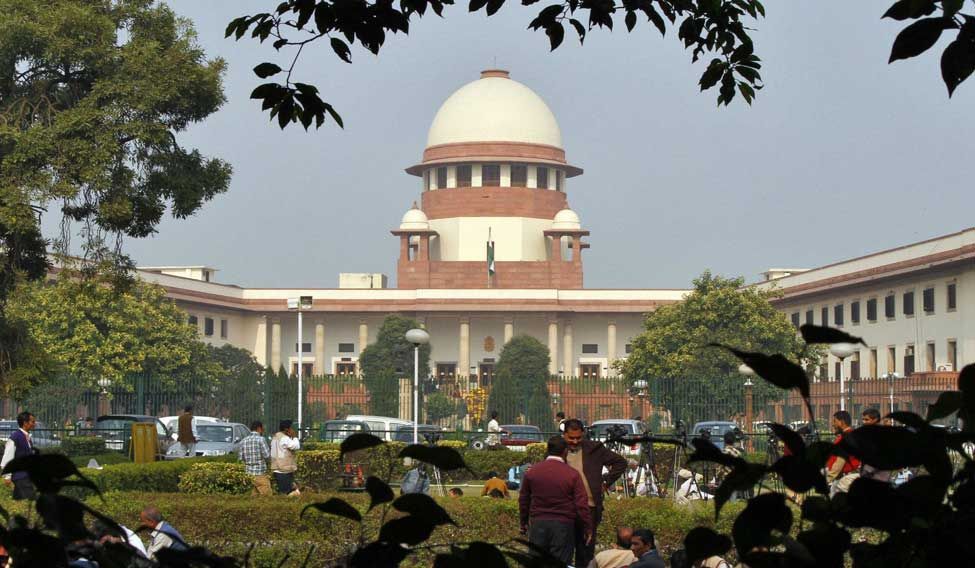The government on Thursday presented its defence on the privacy case to the nine-member Constitution bench headed by Chief Justice of India J .S. Kehar.
Appearing for the states of Karnataka, West Bengal, Punjab and Puducherry, senior lawyer Kapil Sibal took a pro-privacy stance. He said in his submissions that privacy cannot be an absolute right and the court has to strike a balance.
Sibal emphasised that with the advancement of technology, its nature has become all pervasive and therefore the right to privacy should be enforceable against non-state actors as well.
Attorney General of India, K.K. Venugopal, who also appeared to present the government viewpoint in the case, maintained that privacy is a species of personal liberty and that privacy itself is not homogeneous and contains many sub-species.
"It is not possible to elevate all these sub-species to the level of a fundamental right," Venugopal told the bench. He said it is unfair to say Aadhaar will turn India into a totalitarian state. The attorney general pointed out that India’s census surveys collect considerably more information about residents than Aadhaar.
Right to privacy, he said, has more credibility in developed countries that are socially, economically and politically developed, but not in a developing country like India.
The argument for the government side will continue on Friday.
A Constitution bench of the Supreme Court on Wednesday commenced hearing to examine whether right to privacy is a fundamental right—a question pivotal to challenge validity of the Aadhaar scheme,also an ongoing case in the apex court.
Other members of the bench include Justices J. Chelameswar, S.A. Bobde, R.K. Agrawal, Rohinton Fali Nariman, Abhay Manohar Sapre, D.Y. Chandrachud, Sanjay Kishan Kaul and S. Abdul Nazeer.
As the Constitution of India does not explicitly mention about right to privacy, the bench is examining the nature of privacy as a fundamental right and the legal recourse available, if violation to this right is alleged by a citizen.
The question, whether an Indian citizen enjoys right to privacy had come up before the Constitution bench by an SC order in August 2015 while hearing a batch of petitions by Justice K.S. Puttaswamy and Ors. v. Union of India and Ors (WP (Civil) 494/2012) that initially challenged various aspects of the Aadhaar scheme.
A Constitution bench of five-judges was subsequently formed by the CJI on July 12 and in its first hearing held on July 18, the bench referred the issue of right to privacy to a larger nine-judge bench.
"The bench has agreed to arguments that the constitution does not explicitly mention right to privacy. Instead it is to be derived from Article 14 (right to equality), Article 19 (right to freedom) and Article 21 (right to life) in the Constitution. The court agrees that these fundamental rights encompass right to privacy," Arvind Datar, Supreme Court advocate arguing in the case said, after the first hearing on Wednesday.
"Justice Nariman had agreed to this argument and now wants to know if this right is grounded in Article 14, 19 and 21, how one can challenge any denial of right to privacy," he added.
The nine-judge SC Bench is seeking to answer the ‘privacy’ question from two previous SC judgments—M.P. Sharma v. Satish Chandra, related to privacy from police or state actions and Kharak Singh v. State of Uttar Pradesh, related to privacy of an accused criminal.
Senior advocate Gopal Subramaniam, who initiated the hearing, said liberty and privacy are pre-existing natural rights rather than rights that have been conferred by the state, and that if liberty is fundamental value in our Constitution, then privacy is inherent in that.
Subramaniam in his argument drew attention to the words "liberty" and "dignity" in the Preamble to the Constitution. He said, as these appear in the Preamble, they are intended to convey an inherent right recognised by the Constitution. Privacy, he said, is embedded in both these words—a fact recognised in both earlier cases by the apex court.
Advocate Arvind Datar said during his argument that it is paradoxical that in the 21st century and in the largest democracy in the world, the right to life and personal liberty under Article 21 includes about forty other rights but not the right to privacy.
After two days of initial hearing in the case, during which the advocates of the petitioners gave their arguments, the next hearing was due for Tuesday, which was postponed. A later date is yet to be announced.
Reacting to the development, freedom of expression activists felt positive that the bench would have to make the distinction of privacy legally from here on.
“There is a very real threat of potential misuse of Aadhaar data by large private firms. This case is also important as I may not be in favour of enlisting my Aadhaar for my bank account to my ration. Inherently, every individual is logically guaranteed to live the way they want as long as they are not lawbreakers,” said Faisal Farooqui, founder of internet venture mouthshut.com, and a co-petititioner with Shriya Singhal, to Supreme Court resisting government move to link Aadhaar.
According to Mishi Chaudhary, internet rights lawyer in US and India, and founder of Software Freedom Law Centre (SFLC), the bench would set the ground for future protection of internet and other privacy rights as well.
“Privacy is often taken for granted in a 1.5 billion people nation. This bench will set the ground for future cases that seek assistance. Data analytics is not an ethically correct business model. No business should be allowed to abuse people’s right,” said Choudhary.
Incidentally, in US too, the Supreme Court is also all set to begin its own discussion and decide on on right to privacy matters next month.





